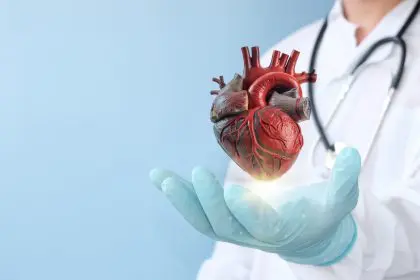Your heart beats approximately 100,000 times every single day, pumping roughly 2,000 gallons of blood through your body without taking a single break. This remarkable organ works tirelessly from the moment you’re born until your final breath, making it one of the most hardworking muscles in your entire body. However, like any machine under constant pressure, your heart can reach a breaking point where it desperately needs attention and care.
Understanding when your cardiovascular system is crying out for help can literally mean the difference between life and death. While heart disease remains the leading cause of death globally, many of the warning signs your heart sends are subtle and easily dismissed as everyday stress or aging. Learning to recognize these crucial signals empowers you to take proactive steps before a minor issue becomes a life-threatening emergency.
The modern lifestyle places unprecedented demands on our cardiovascular system. Chronic stress, poor dietary choices, sedentary behavior, inadequate sleep, and environmental toxins all contribute to heart strain. Your heart doesn’t have the luxury of calling in sick or taking vacation days, so it communicates distress through a complex system of physical symptoms and changes in your body’s normal functioning.
Chest discomfort that won’t quit
The most recognized sign of heart trouble is chest pain, but this symptom manifests in countless ways beyond the classic crushing sensation often portrayed in movies. Many people experience a persistent ache, pressure, or squeezing feeling in their chest that comes and goes throughout the day. This discomfort might feel like someone is sitting on your chest or like you have a tight band wrapped around your torso.
The pain doesn’t always stay in your chest area. It frequently radiates to your left arm, jaw, neck, back, or even your stomach. Some people describe it as a burning sensation similar to heartburn, while others feel a sharp, stabbing pain that takes their breath away. The key distinction is persistence and pattern – heart-related chest pain often occurs during physical activity or emotional stress and may subside with rest.
Women particularly experience chest discomfort differently than men. Instead of the typical crushing chest pain, women often report a dull ache, pressure, or fullness in their chest. This pain might be accompanied by nausea, lightheadedness, or upper back pain. The subtlety of these symptoms often leads to delayed treatment, making awareness of these variations crucial for early intervention.
Breathing becomes a struggle
Shortness of breath during normal activities signals that your heart isn’t pumping blood efficiently throughout your body. When your heart muscle weakens or becomes damaged, it struggles to meet your body’s oxygen demands, leaving you gasping for air during activities that previously felt effortless.
This breathing difficulty often starts gradually. You might notice yourself becoming winded while climbing stairs, walking to your car, or even during conversations. As the condition progresses, you may find yourself short of breath while lying flat, requiring multiple pillows to sleep comfortably. Some people wake up in the middle of the night struggling to catch their breath, a condition that indicates fluid buildup in the lungs due to heart failure.
The sensation varies from person to person. Some describe it as feeling like they’re breathing through a straw, while others feel like they can’t get enough air no matter how deeply they breathe. This symptom becomes particularly concerning when it occurs without any apparent physical exertion or when it progressively worsens over time.
Overwhelming exhaustion takes over
Persistent fatigue that doesn’t improve with rest often indicates your heart is struggling to pump blood effectively throughout your body. When your cardiovascular system becomes compromised, your organs and muscles don’t receive adequate oxygen and nutrients, leaving you feeling drained and exhausted even after a full night’s sleep.
This isn’t the typical tiredness you feel after a long day at work or an intense workout. Heart-related fatigue feels overwhelming and doesn’t improve with coffee, energy drinks, or even extended rest periods. Simple tasks like getting dressed, preparing meals, or climbing a flight of stairs feel monumental. Many people describe this exhaustion as feeling like they’re moving through thick mud or carrying extra weight.
The fatigue often comes with a sense of weakness, particularly in your arms and legs. You might find yourself avoiding physical activities you once enjoyed or needing frequent breaks during normal daily tasks. This symptom develops gradually, making it easy to attribute to aging, stress, or being out of shape, but persistent unexplained fatigue warrants immediate medical evaluation.
Heart rhythm irregularities
Your heart maintains a steady, rhythmic beat under normal circumstances, but when it’s under stress or damaged, this rhythm can become irregular. Heart palpitations feel like your heart is racing, skipping beats, or fluttering in your chest. While occasional palpitations during stressful situations are normal, persistent or frequent irregularities indicate potential heart problems.
These rhythm disturbances manifest in various ways. Some people feel their heart pounding so hard they can see their shirt moving with each beat. Others experience a racing sensation where their heart feels like it’s trying to escape from their chest. Skipped beats create a flip-flopping sensation, while some people describe their heart rhythm as erratic or chaotic.
The timing of these irregularities provides important clues about their significance. Palpitations that occur during rest, wake you from sleep, or persist for extended periods require immediate attention. Additionally, if these rhythm changes accompany other symptoms like chest pain, dizziness, or shortness of breath, they indicate a potentially serious cardiac event requiring emergency medical care.
Swelling in unexpected places
When your heart can’t pump blood efficiently, fluid begins accumulating in various parts of your body, causing noticeable swelling. This swelling, called edema, typically starts in your feet, ankles, and legs but can progress to your hands, arms, and even your abdomen as the condition worsens.
The swelling often begins subtly. You might notice your shoes feeling tighter at the end of the day or sock marks leaving deeper impressions on your ankles. As fluid retention increases, the swelling becomes more pronounced and may not disappear overnight. Pressing your finger into the swollen area leaves a temporary indentation, indicating significant fluid buildup.
This symptom progresses systematically. Initially, the swelling might only appear after long periods of standing or sitting. As heart function deteriorates, the swelling becomes constant and spreads to higher parts of your body. Some people notice their rings becoming too tight or their clothing fitting differently around their midsection due to abdominal fluid accumulation.
Dizziness and lightheadedness
Inadequate blood flow to your brain causes dizziness, lightheadedness, and sometimes fainting episodes. When your heart can’t maintain adequate blood pressure or rhythm, your brain doesn’t receive sufficient oxygen, resulting in these alarming symptoms. These episodes often occur suddenly and can be dangerous if they happen while driving or operating machinery.
The sensation ranges from mild lightheadedness when standing up quickly to severe dizziness that makes walking difficult. Some people describe feeling like they’re going to pass out, while others experience a spinning sensation similar to vertigo. These symptoms often worsen with physical activity or when changing positions rapidly.
Fainting episodes, even brief ones, represent a serious warning sign that your heart isn’t maintaining adequate blood flow to your brain. These episodes might be preceded by nausea, sweating, or tunnel vision. If you experience unexplained fainting or near-fainting episodes, especially if accompanied by other heart symptoms, seek immediate medical attention.
Unusual pain in unexpected locations
Heart problems don’t always announce themselves with obvious chest pain. Many people experience referred pain in areas that seem completely unrelated to their heart. This pain occurs because nerve pathways from the heart share connections with other parts of your body, causing heart-related discomfort to appear in surprising locations.
Jaw pain, particularly on the left side, frequently indicates heart problems. This pain might feel like a toothache or jaw muscle strain but occurs without any dental issues or jaw injury. Some people experience persistent neck pain or shoulder discomfort that doesn’t respond to typical treatments for muscle strain or poor posture.
Upper back pain between the shoulder blades can also signal heart trouble, especially in women. This pain might feel like a burning sensation or persistent ache that comes and goes. Arm pain, particularly in the left arm, remains a classic sign of heart problems, but it can also occur in the right arm or both arms simultaneously.
Taking action when your heart calls for help
Recognizing these warning signs represents only the first step in protecting your cardiovascular health. The timing of your response can significantly impact your long-term health outcomes and potentially save your life. Understanding when to seek immediate emergency care versus when to schedule a medical appointment helps ensure you receive appropriate treatment.
If you experience severe chest pain, particularly if it’s accompanied by shortness of breath, nausea, sweating, or pain radiating to your arm or jaw, seek emergency medical attention immediately. Similarly, if you have sudden onset of severe shortness of breath, fainting episodes, or rapid heart rate with dizziness, these symptoms require immediate evaluation.
For less severe but persistent symptoms like gradual onset of fatigue, mild shortness of breath during activity, or occasional palpitations, schedule an appointment with a healthcare provider within a few days. Don’t wait for symptoms to worsen or hope they’ll resolve on their own. Early intervention often prevents minor heart problems from progressing to life-threatening conditions.
Your heart’s health depends on your ability to recognize its distress signals and respond appropriately. By understanding these warning signs and taking them seriously, you’re taking the first crucial step toward protecting one of your body’s most vital organs. Remember that your heart never stops working for you – make sure you don’t ignore its calls for help.














